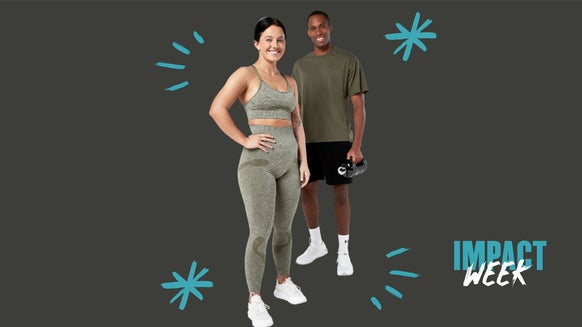Weekend Workouts Enough To Keep Fit, Study Says

Prefer to cram in your gym sessions on your days off? Good news — a study tracking more than 350,000 people over an average of 10 years has found that intense bursts of weekend exercise are just as good for your health as spreading out your workouts over the week.1
Music to the ears of so-called “weekend warriors”. Here’s what the study found and what it could mean for your exercise habits.

The study
The US and UK guidelines for weekly physical activity are similar, and both recommend 150 minutes of moderate intensity activity or 75 minutes of vigorous activity a week.2,3
The study, published in the medical journal JAMA Internal Medicine, investigated whether fitting all the recommended exercise into one or two sessions (weekend warriors) had the same effect on mortality as spreading exercise across three or more sessions over the week (regularly active).
Between 1997 and 2013, 350,978 US adults self-reported their physical activity level to the US National Health Interview Survey.
The participants were grouped according to their reported activity levels, from physically inactive (less than 150 minutes a week) to physically active (more than 150 minutes a week). They were then categorised according to the intensity, frequency and duration of activity.
The researchers monitored all-cause, cardiovascular disease and cancer mortality over this period, undertaking a final statistical analysis of the different groups in April 2022.1
The findings
The study found no significant differences in mortality rates between participants who did their recommended exercise in two days (weekend warriors) and those who spread it out over the week (regularly active).
Both groups saw a lower all-cause and cause-specific mortality compared with those in the inactive group.
The researchers concluded that physically active people who follow the recommended weekly guidelines experience the same benefits regardless of when exercise takes place.
However, while this study has found that completing physical activity in two days or sessions has equal benefits for health and fitness, the NHS advises that adults should complete some form of physical activity every day.3
The NHS’s activity recommendations
NHS guidance for adults between the ages of 18 and 64 is to do at least 150 minutes of moderate intensity activity or 75 minutes of vigorous intensity activity a week.
The NHS also recommends:
- Two sessions per week of strengthening activities like resistance training, yoga or pilates
- Spreading exercise evenly over four to five days a week, or every day
- Reducing time spent sitting or lying down and break up long periods of not moving with some activity like walking
Moderate exercise includes2:
- Brisk walking
- Water aerobics
- Cycling
- Dancing
- Mowing the lawn
- Hiking
- Rollerblading
Vigorous exercise includes2:
- Running
- Swimming
- Intense cycling (like intervals, uphill, long rides or with resistance)
- Walking up stairs (or the Stairmaster in the gym)
- Team sports like football or netball
- Skipping
- Gymnastics
- Martial arts like karate
Very vigorous activity includes2:
- Lifting heavy weights
- Circuit training or high intensity interval training (HIIT)
- Hill sprinting
- Interval sprinting
- Running up stairs
- Spin classes
The NHS suggests a mix of all these intensities every week is a great way to stay fit and healthy. For more info, head to the NHS exercise page.2
Take home message
So, this study suggests that even if you prefer to work out over the weekend, you should experience the same benefits as someone who exercises the same amount but spread out more regularly throughout the week.
The important thing is to stay physically active and complete at least 150 of moderate activity or 75 minutes of vigorous activity a week. And even if you struggle to find the time for this, some exercise is always better than no exercise at all.
READ THESE NEXT:

- https://jamanetwork.com/journals/jamainternalmedicine/fullarticle/2794038?guestAccessKey=f007fc92-fe9c-4a39-a1c1-e0ff5470133a&utm_source=For_The_Media&utm_medium=referral&utm_campaign=ftm_links&utm_content=tfl&utm_term=070522
- https://www.nhs.uk/live-well/exercise/exercise-guidelines/physical-activity-guidelines-for-adults-aged-19-to-64/
- https://www.cdc.gov/physicalactivity/basics/adults/index.htm
- https://www.bbc.co.uk/news/health-62040665









